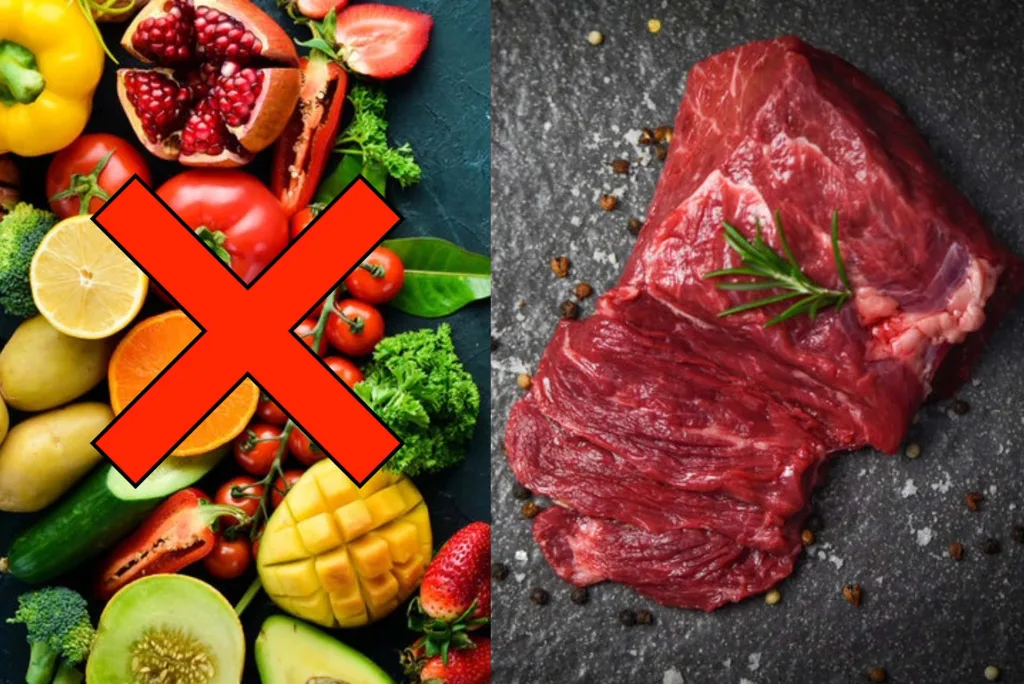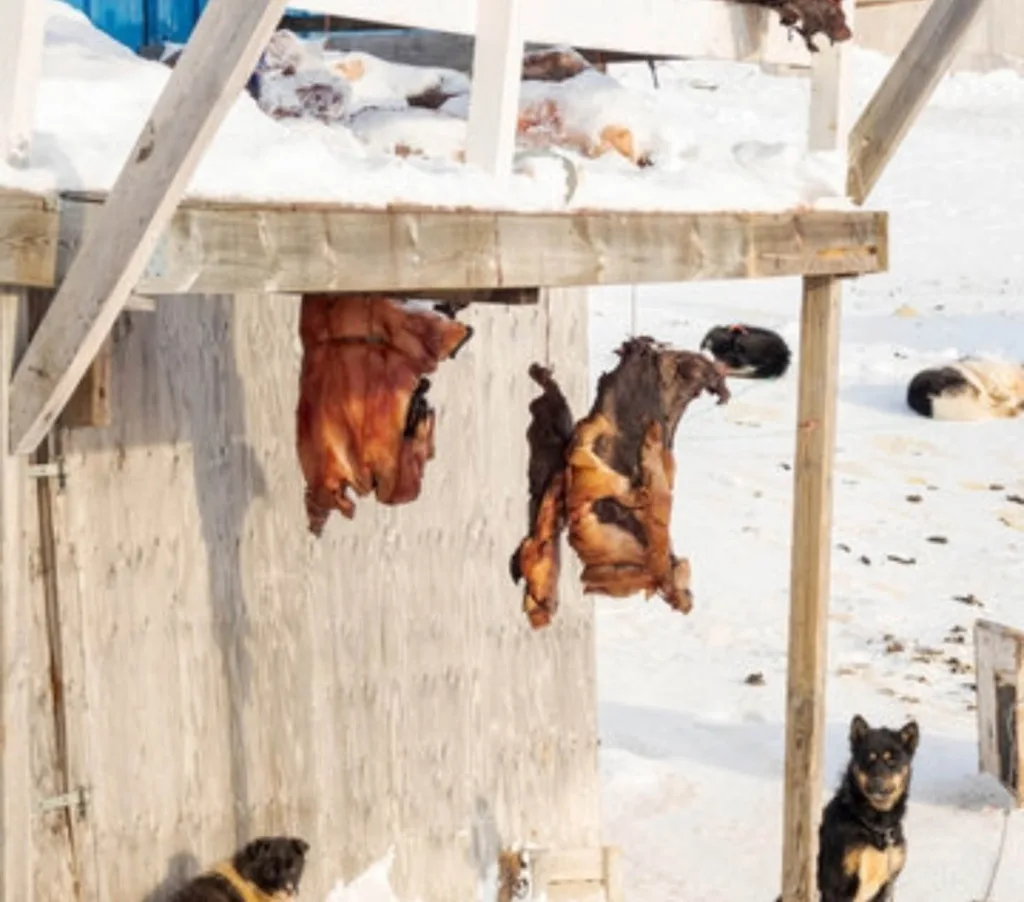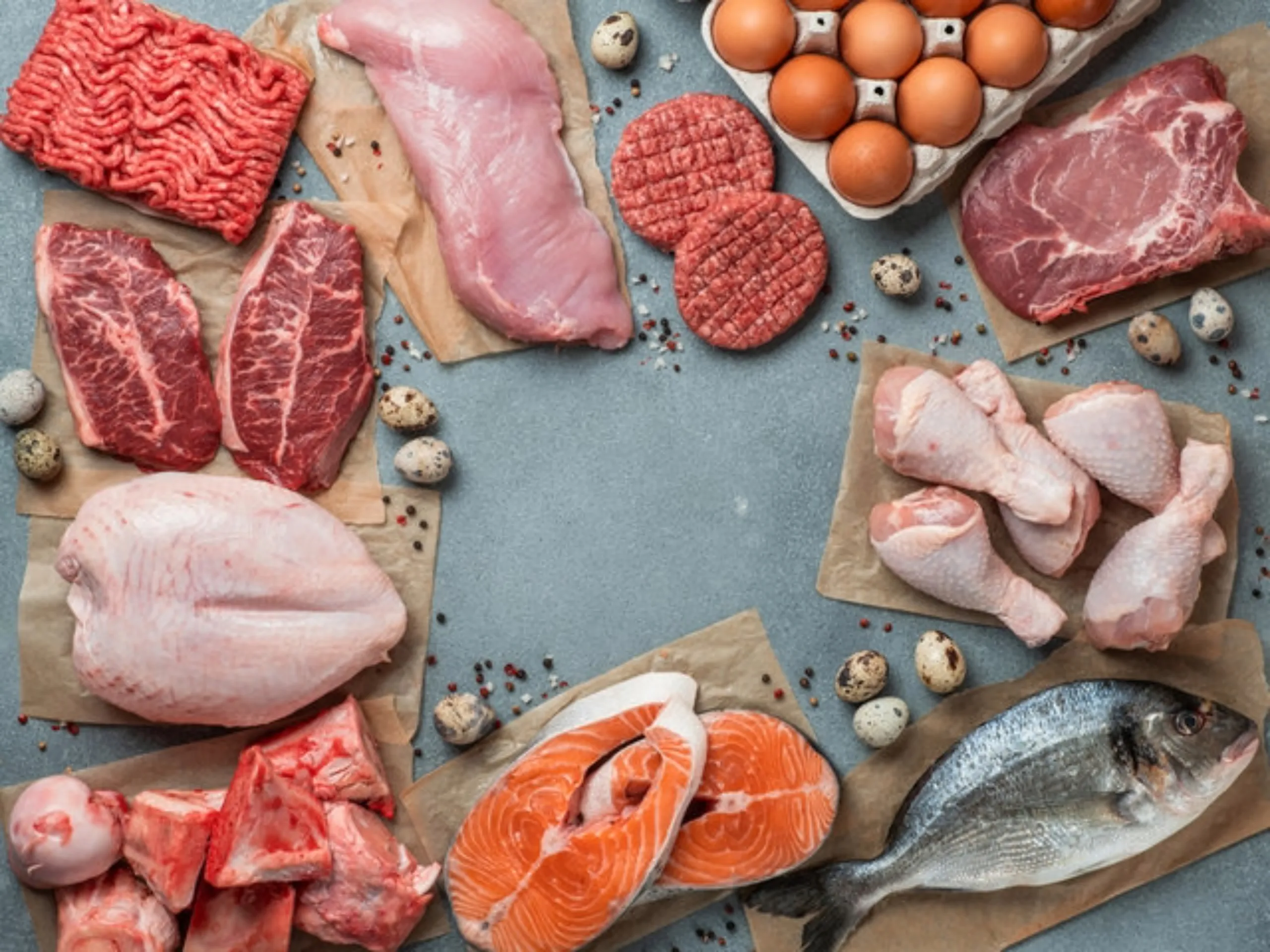I’ve recently noticed a diet that is trending – the carnivore diet – not just among people in general, but also among people with IBS. Being a dietitian makes me very interested in all diets, but I must say this takes the cake. This diet seems to be completely counterintuitive, as it goes against all dietary guidelines out there, so why do people try it anyway?
It's because some people who follow the carnivore diet report feeling much better after switching. They feel more energetic and lighter than before. They report that their IBS symptoms get better, even disappear in some cases. As a registered dietitian, this is hard hard for me to believe, so let’s dig in and see what is going on here.

The Carnivore Diet: A Closer Look
Let’s first find out what this diet is. This diet is almost exactly as it sounds: it is all meat, fish and chicken. You are also allowed a little bit of cheese, heavy cream and eggs. Fat sources are lard and tallow, although some allow plant oils in the diet also. You can drink unsweetened coffee and tea and add spices that contain no carbs.
Basically, this diet is an extremely low carbohydrate diet, very high in protein, and high in fat. It is not possible to get all the nutrients your body needs from this diet, especially vitamin C, B vitamins, vitamin K and calcium, unless you include a variety of organ meats in your diet every day, like liver, kidney, and brain. For omega-3 fatty acids, it’s important to eat fatty fish, like salmon. Unless you drink coffee or tea, this diet contains hardly any antioxidants - these are highly beneficial for your health as they fight free radicals that damage your tissues. Animal foods contain no fiber that are needed to support the health of the gut microbiota.
To sum up, the carnivore diet is a highly restrictive eating plan that consists of 99% animal-based foods and carries with it a high risk of malnutrition. It’s not a diet that any dietitian or doctor can recommend to be followed. How is it possible then, to feel better with this diet?
Why you might feel better
There are no objective studies done, so I can’t say anything for sure, but I have a few theories why someone might feel better.
- You eat hardly any processed food and no sugar. Processed food is a big problem in today’s world. These foods usually contain additives, sugar, and hardly any vital nutrients, and so they are harmful to health. People who follow the carnivore diet are likely to eat a lot less processed food, perhaps even none, unless they choose deli meats and sausages etc. on their plate.
- Ketosis. The carnivore diet contains close to 0 grams of carbohydrate, which means the body must go into ketosis to survive. People on a ketogenic diet report feeling more alert (though not always!). Ketogenic diets also increase fat loss in the body, which helps lose weight and may help make you feel better (at least in the short term).
- Placebo effect. It is a big dietary change, and if you are expecting to feel better, the placebo effect can help you achieve this. At least for a while. Placebo effect tends to lose power long term.
- No carb fermentation. Gut symptoms may improve as there is no fiber for the gut microbes to process and make gas from – bloating and flatulence improve. However, a diet with no fiber, and without green/herbal tea no polyphenols either, cause negative changes to the composition of the gut microbiota (=dysbiosis). The lack of fiber tends to lead to constipation, and some people might even experience diarrhea caused by the dysbiosis.
It’s important to note, however, that there is no guarantee that you will continue feeling better in the long term. I’m almost certain the feeling will go away quickly, as the gut microbiota changes will affect your health negatively. Scientists can’t even study this diet properly, as it is unethical to conduct a study on a diet that is known to be risky. Here are some reasons why it is highly risky to follow the carnivore diet, especially for longer than a few days.

The risks involved
- Who knows what this does in the long term! There are no studies, and objective studies are not possible because of ethical reasons as mentioned above. Researchers would have to rely on a small group of volunteers, and so there would be many biases that come from a non-random study groups making results untrustworthy.
- In the long term, you will very likely get nutrition deficiencies without supplementation.
- No fiber in the diet leads to gut microbiota dysbiosis, which leads to health problems
- Gut microbes will need to process proteins and amino acids instead, leading to production of potentially harmful compounds.
- High meat consumption is linked to a host of health problems, like gout, osteoporosis, and kidney stones, and even colon cancer, whereas plant rich diets are linked to longevity and lower risk of chronic illnesses.
- No antioxidants at all, unless tea/coffee is added to the diet. Antioxidants fight free radicals and tissue damage.
- Humans are not actually carnivores, we are omnivores. Just compare the digestive systems of a wolf and a human. It’s not built to process only animal protein.
- Very high protein content. Excess protein will be turned into carbs and other molecules, and getting rid of protein waste products is very tough on the body. Kidneys will be taking a hit in the long term.
- The diet is not sustainable, you’ll get cravings eventually and it will be hard to maintain the diet. Resuming to your normal diet after being on a carnivore diet can cause you to regain all the weight you had lost, and sometimes gain even more.
- Following the diet increases the risk of disordered eating for people prone to them.
- Constipation from no fiber / diarrhea from changed microbiota.
Who absolutely should not try this diet

I wouldn’t recommend anyone following the carnivore diet, but people who are pregnant, lactating, have heart disease, kidney disease and potentially diabetes should not try this diet. Some experts also include people with IBS in this group, as the digestive system needs fiber to function normally.
But what about the Inuit?
The carnivore diet (or any meat-heavy diet for that matter) is against the dietary recommendations of any given country in the world. But then we have Inuits who mostly eat fish and meat. They seem to do well on this diet. So why shouldn’t others do the same?
This is an excellent question! Here’s what I found.
The reason for why the Inuit have been thriving on a diet that is high in animal protein is a result of thousands of years of genetic adaptation. These genes help the Inuit utilize high-fat diets well, and these genes are not commonly found in Europeans for example.

However, it’s important to note that the traditional Inuit diet is not a carnivore diet, it also includes local plant foods, studies are estimating 8-50% carbohydrate. Also, the Inuit eat lots of marine mammals and fish, including their internal organs, which helps provide more of the nutrients the body needs.
It has been thought that heart disease doesn’t exist among the Inuit population, but this might not be the case. Another problem with this diet is also that it doesn’t promote bone health - the Inuit have been found to have very poor bone health and early onset osteoporosis.
What to do instead
If you have IBS, and are seeking a diet that minimizes symptoms, it shouldn't be the carnivore diet. It might not be the low FODMAP diet either. What you need is a balanced, highly individualized diet that takes into account much more than just your gut symptoms, such as your age, gender, background history, habits, skills and so on. This is what dietitians do – they look at your diet from all angles and recommend changes to support your gut health, your overall health and your wellbeing.
If you are considering trying out an extreme diet like the carnivore diet, it is a sign to talk to an IBS dietitian and get real solutions that bring you real results, without risking your long term health. Book a free gut health review with me to kickstart your journey to finding your very own, best possible IBS diet.
With love,
Anna-Kaisa

PS. If you haven’t yet, download my free “5 Easy Ways to Beat the Bloat” guide packed with actionable tips that you can start applying in your day to day life right away.
PPS. Let’s chat! There is a right IBS diet for you out there. Book your free gut health review now!
References:
- LeWine, H. E., What is the carnivore diet? Harvard Health Publishing. 2024. Accessed 11/20/2024
- Eagle, R, medically reviewed by Seitz, A. Carnivore diet: What it is and how to do it. 2020. https://www.medicalnewstoday.com/articles/carnivore-diet accessed 11/20/2024
- Campbell, T. Masai and Inuit High-Protein Diets: A Closer Look. NutritionStudies.org. Accessed 11/20/2024
- Fumagalli M, Moltke I, Grarup N, Racimo F, Bjerregaard P, Jørgensen ME, Korneliussen TS, Gerbault P, Skotte L, Linneberg A, Christensen C, Brandslund I, Jørgensen T, Huerta-Sánchez E, Schmidt EB, Pedersen O, Hansen T, Albrechtsen A, Nielsen R. Greenlandic Inuit show genetic signatures of diet and climate adaptation. Science. 2015 Sep 18;349(6254):1343-7. doi: 10.1126/science.aab2319. PMID: 26383953.
- Oliphant K, Allen-Vercoe E. Macronutrient metabolism by the human gut microbiome: major fermentation by-products and their impact on host health. Microbiome. 2019 Jun 13;7(1):91. doi: 10.1186/s40168-019-0704-8. PMID: 31196177; PMCID: PMC6567490.

